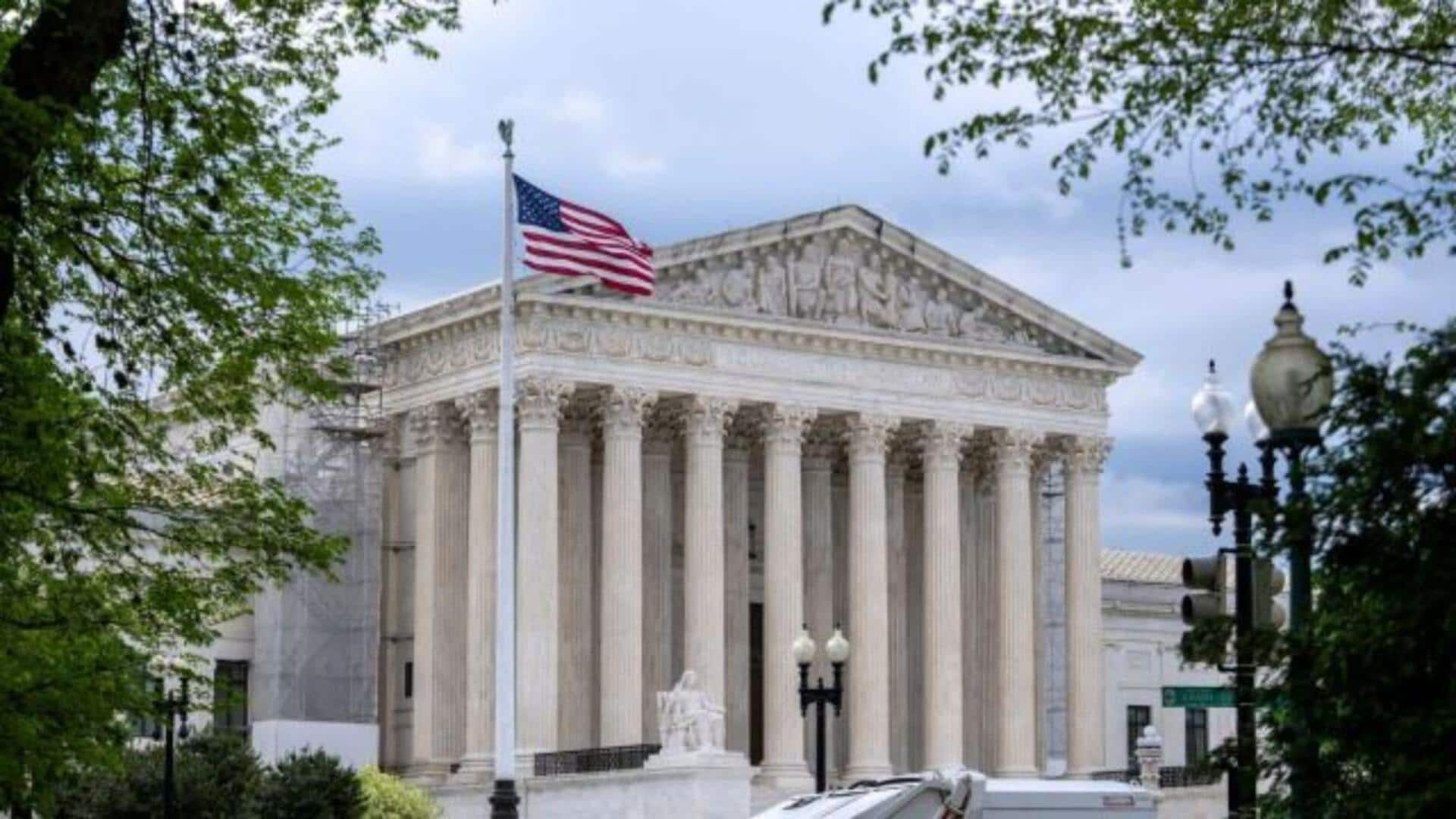
Trump's tariffs labelled 'illegal $3 trillion tax' by small businesses
What's the story
The United States Supreme Court is set to rule on whether President Donald Trump's global tariffs are an illegal $3 trillion tax on American businesses, Bloomberg reported. The case, which will be heard on November 5, revolves around the 1977 International Emergency Economic Powers Act (IEEPA), which allows the president to impose financial measures during national security, foreign policy, or economic emergencies. Small businesses have argued that the tariffs exceed Trump's authority under this act.
Legal argument
Learning Resources's argument against Trump's tariffs
Learning Resources Inc., one of the companies challenging the tariffs, argued that Trump's actions amount to a "$3 trillion tax increase over the next decade." The company claimed Trump usurped Congress's power by imposing tariffs under an emergency law not meant for duties. The appeal also includes Trump's April 2 "Liberation Day" tariffs, which imposed levies of 10%-50% depending on the origin, and those targeting Canada, Mexico, and China for migration and fentanyl trafficking issues.
Administration response
White House's stance on litigation
The White House has not publicly commented on the litigation. However, administration officials have downplayed its impact, saying some tariffs were imposed under other legal statutes, including steel, aluminum, and automobile levies, which are unaffected by this appeal. A group led by wine distributor V.O.S. Selections Inc. also argued against the government's position on tariff imposition powers under IEEPA.
Additional challenges
Broader implications of the case
In addition to small businesses, a coalition of Democratic-led states has filed challenges against the tariffs. The Supreme Court's decision could redefine the executive power balance and impact US trade policy for years to come. Observers note that the court's aggressive schedule indicates a desire for a swift resolution on this important matter. During its new term, which began last month, the Supreme Court was expected to scrutinize presidential powers in important cases, including the firing of federal employees.